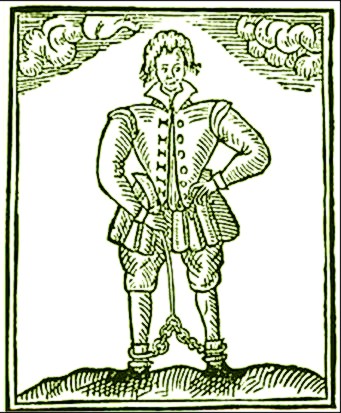Summary:
On occasion Kerr watched the bird people fight, who left
luminous trails in their wake, until he met Rhysha, face to face—her plumage
glowing. She came to Kerr’s identification bureau to identify her brother, dead
from a bird people fight—fights that the Earth people put on after forcing them
to migrate. The bird people join the fights that used to be rituals, but now
are a means to exit this life. The Earth people despise all extraterrestrials—even
the beggars. Kerr befriends her and goes to speak for her people to give them a
new planet to populate.
Commentary with Spoilers:
 The hearing doesn’t go well. Kerr gets Rhysha to promise her
people will stop fighting, but when Kerr gets sick, she fights anyway, leaving
a note behind of how she had tried to get to him.
The hearing doesn’t go well. Kerr gets Rhysha to promise her
people will stop fighting, but when Kerr gets sick, she fights anyway, leaving
a note behind of how she had tried to get to him.
The title comes from a famous poem (one of the top one hundred most printed poems in the English language) by Thomas Nashe, called sometimes by "A Litany in Time of Plague" or by its first line "Adieu, farewell, earth’s bliss" (which might be recognized as the title to D.G. Compton's Mars novel). James Tiptree, Jr. also used the title "Brightness Falls from the Air" for one of her novels.
Thomas Nashe sounds like something of a impish troublemaker, which may help in interpreting his poem (see Nashe's Wikipedia page and the image of him in chains, which seems to have been more wishful thinking, but not for people's lack of trying).
Just as Nashe's poem may read differently divorced from its source, so does St. Clair's title. In the poem, "Brightness falls from the air" is something of a non-sequitur, perhaps merely denoting sunlight (perhaps it is linked with youth which precedes it, or with royalty which follows, but these semicolons seem to suggest separate statements building up to the chorus].
St. Clair's tale is meant to be neither humorous nor, I think, resigned to death, necessarily, as a plague outside human control decimates Nashe's population. Instead, she takes her title literally, and her readers are meant to witness an injustice: the mistreatment of outsiders.
St. Clair's tale is meant to be neither humorous nor, I think, resigned to death, necessarily, as a plague outside human control decimates Nashe's population. Instead, she takes her title literally, and her readers are meant to witness an injustice: the mistreatment of outsiders.
Clair’s tale is simple, moving and worthy of her best, capturing strange, colliding cultures in a few
deft strokes. Hartwell writes that her story accomplishes her goal to “develop
a global consciousness” by dealing with “beauty, death, and colonialism.” The
tale doesn’t make clear the connection with Kerr’s amateur singing, but perhaps
it is an irony that he would try to impress the bird people with his singing
although the text isn’t explicit about the bird people’s abilities in this
matter.*
* Interestingly, I'd mentioned this in the first explanation. Not recalling my first analysis (lacking internet when I wrote this up), I mentioned it again, thinking it just occurred to me.
* Interestingly, I'd mentioned this in the first explanation. Not recalling my first analysis (lacking internet when I wrote this up), I mentioned it again, thinking it just occurred to me.

No comments:
Post a Comment